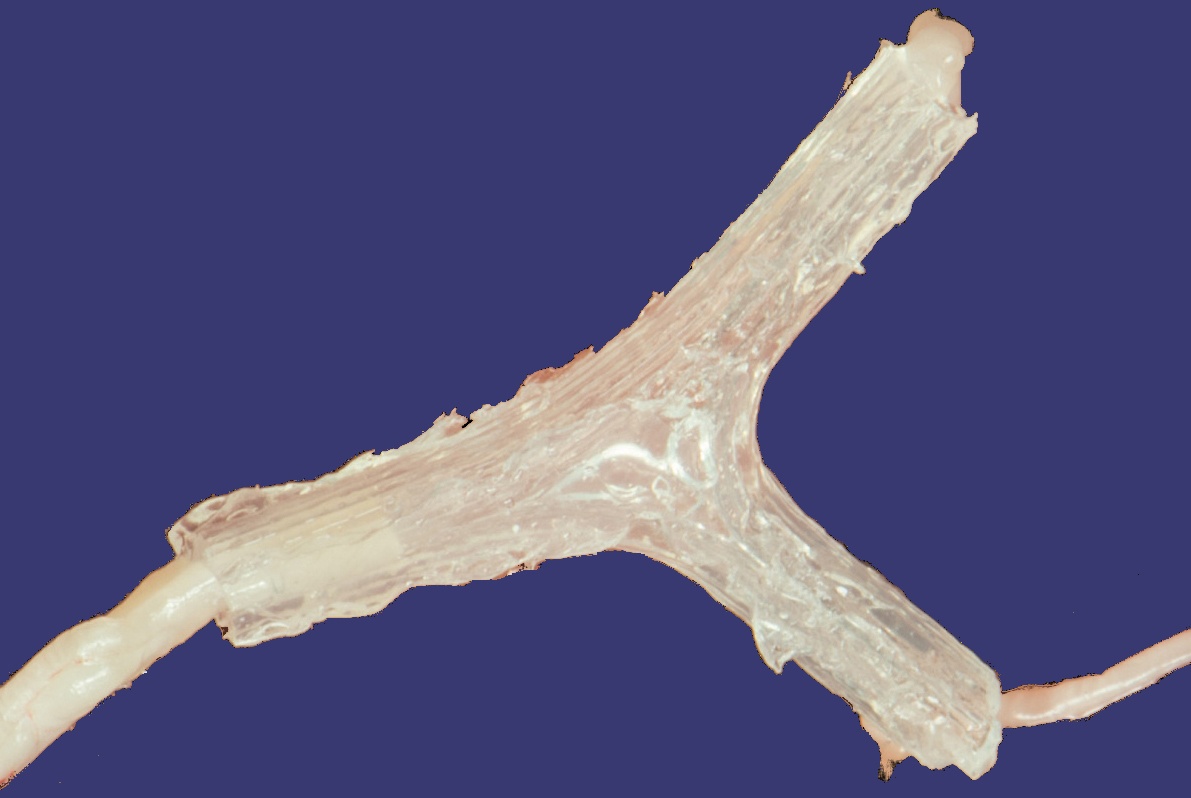Until recently, nerve damage has been considered irreparable and impossible to treat. Only now are we seeing breakthroughs in nerve care such as Washington University’s study on preventing axon degeneration and UC Irvine’s study on regenerating nerves with salmon protein. Taking things one step farther, a University of Minnesota, Twin Cities research group has developed a method to foster nerve regrowth using 3D printing.
 Nerve regeneration is classically quite rare. The process requires a perfect mixture of biochemical cues and existing infrastructure. In most clinical cases, too much damage is done to the infrastructure to allow the body to regrow the nerves. Michael McAlpine, professor at UMN, decided to see if state of the art 3D printing techniques couldn’t be used to provide this infrastructure.
Nerve regeneration is classically quite rare. The process requires a perfect mixture of biochemical cues and existing infrastructure. In most clinical cases, too much damage is done to the infrastructure to allow the body to regrow the nerves. Michael McAlpine, professor at UMN, decided to see if state of the art 3D printing techniques couldn’t be used to provide this infrastructure.
As it turned out, McAlpine was able to produce a silicone guide that mimic the structure of a rat’s sciatic nerve, without which a rat cannot walk. He also imbued the guide with biochemical cues that promote nerve regeneration. After grafting the guide to the ends of a damaged rat sciatic nerve, the rat was able to walk again in only 12 weeks.
“This represents an important proof of concept of the 3D printing of custom nerve guides for the regeneration of complex nerve injuries,” says McAlpine in a recent University of Minnesota article. “Someday we hope that we could have a 3D scanner and printer right at the hospital to create custom nerve guides right on site to restore nerve function.”
As we mentioned earlier, this is not the first study to prove nerve regeneration possible. It is unique in its complexity, however: where most studies restore linear nerves, this is the first time something as complex as the sciatic nerve (which has a tricky “Y” shape) has been regenerated. McAlpine attributes this to the guides and believes that there is no nerve shape too complicated to print. He is now compiling a library of rat and human nerves so he can print on command without needing to scan for nerve shape.

(McAlpine’s sciatic nerve guide. Note the “Y” shape and real nerve ends on the left and right. Image courtesy UMN.)
Funding for this research came from grants from the National Institutes of Health, the Defense Advanced Research Projects Agency, the Maryland Stem Cell Research Fund, and the Grand Challenges Program at Princeton University. For more information about grants and funding for UMN, read our free University of Minnesota Funding Statistics Report accessible via the link below.
Biotechnology Calendar, Inc. hosts two of our BioResearch Product Faire™ events in the Minnesota area. We offer the BioResearch Product Faire™ Event in Rochester, Minnesota and the BioResearch Product Faire™ Event at The University of Minnesota, Twin Cities each year. The latter event is held directly on the thriving University of Minnesota, Twin Cities Campus. Biotechnology Calendar is a full service event marketing and planning company producing on-campus, life science research trade shows nationwide for the past 20 years. We plan and promote each event to bring the best products and services to the finest research campuses across the country. To attend one of these shows, please stay tuned to hear about our 2016 schedule. In the meantime, feel free to peruse our 2015 show schedule.


